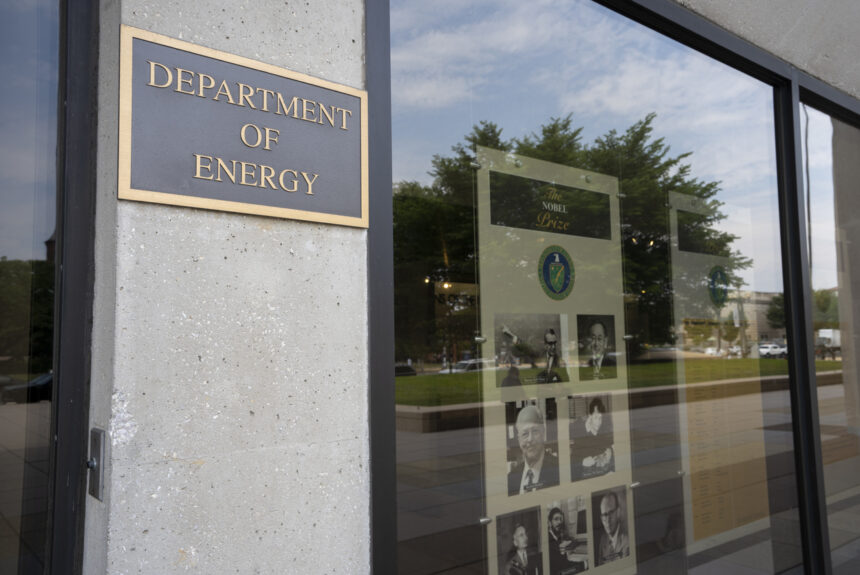The Department of Energy’s national laboratories are known as the crown jewels of America’s federal research ecosystem. With some of the world’s brightest minds working at state-of-the-art facilities, the national labs have been essential in advancing scientific discovery and knowledge. A newly established foundation can help maximize their impact on energy innovation.
Last month, DOE announced the 13-member board for the Foundation for Energy Security and Innovation (FESI). Authorized by Congress under the Chips and Science Act of 2022, FESI is a non-profit foundation dedicated to advancing the mission of DOE. While much effort went into establishing FESI, now the real work begins. By leveraging private investment, FESI can be instrumental in enhancing energy security, driving environmental progress, and accelerating the commercialization of transformative technologies.
>>>READ: DOE Announces $1.2 Million for CO2 Removal Semifinalists
Having a foundation that serves as an official nonprofit arm of a government agency is not a new concept. In 1967, Congress created the National Park Foundation to engage with citizens to protect and enhance historic sites and areas. Private donations help conserve habitat, remove invasive species, and maintain trails. In 1990, Congress established the Foundation for the National Institutes of Health as a charitable organization that raises private money and “creates public private partnerships to support the mission of the NIH—making important discoveries that improve health and save lives.”
FESI follows that model and will raise private funding to accelerate energy innovation and help move technologies from lab to the market. If successful, this privately funded public-private partnership will create a more competitive energy sector, boost energy security, and reduce the risks of climate change.
FESI can be the connective tissue between the public and private sectors by building relations between DOE’s infrastructure and private funders. While there is some relationship between the national laboratories and the private sector today, FESI can supercharge it. The foundation can help create bottom-up opportunities where lab scientists identify entrepreneurial activities, and it can help the private sector tap into the knowledge, expertise, and infrastructure at America’s labs. Even with limited resources, FESI should help lower the regulatory and information barriers for investors who want to pursue technology development and commercialization.
One of FESI’s key advantages will be its flexibility. Although DOE has made notable progress in standing up programs to enable technology maturation originating from basic research, there are many well-documented frustrations and challenges, too. Some challenges include conflict of interest laws, a culture of risk aversion (dictated by and in some cases necessary because of existing laws and regulations), budget micromanagement, weakened engagement with industry, and less weight given to performance metrics for technology transfer. While Congress and DOE should not ignore these problems, FESI could circumnavigate some of the legal, regulatory, policy, and cultural barriers that stifle collaboration and engagement.
>>>READ: New Report Outlines Regulatory Barriers to Innovation
FESI can showcase its flexibility in many ways. It could help respond to COVID-like crises. FESI could create consortium partnerships to solve technological challenges an entire industry faces or leverage national lab assets for a specific company’s need. It could move smaller chunks of money out the door quickly, which could be particularly beneficial and effective for small businesses and inexpensive, but potentially groundbreaking, technologies. FESI could also serve as an independent, non-partisan voice that thoroughly audits all the policy and regulatory barriers that impede technology transfer, commercialization, and energy innovation. Critically, FESI’s engagement should identify gaps that the private sector is not already reaching.
With a board in place and some walking around money, FESI is a bit of a blank canvas but has no shortage of ideas for how to maximize its impact. As Friends of FESI leader David Hart recently wrote, the board should “take immediate actions that have an immediate impact, but more importantly, put the foundation on a path to expand that impact exponentially in the coming years. That means thinking big from the start, identifying unique high-leverage opportunities, and systematically building the capacity to realize them.”
FESI will have a unique relationship with DOE and its assets but also necessary independence from it. With bipartisan support and collaboration, FESI can harness the expertise at the national labs and in the private sector, using private money, to achieve greater levels of economic prosperity and environmental progress.
The views and opinions expressed are those of the author’s and do not necessarily reflect the official policy or position of C3.
